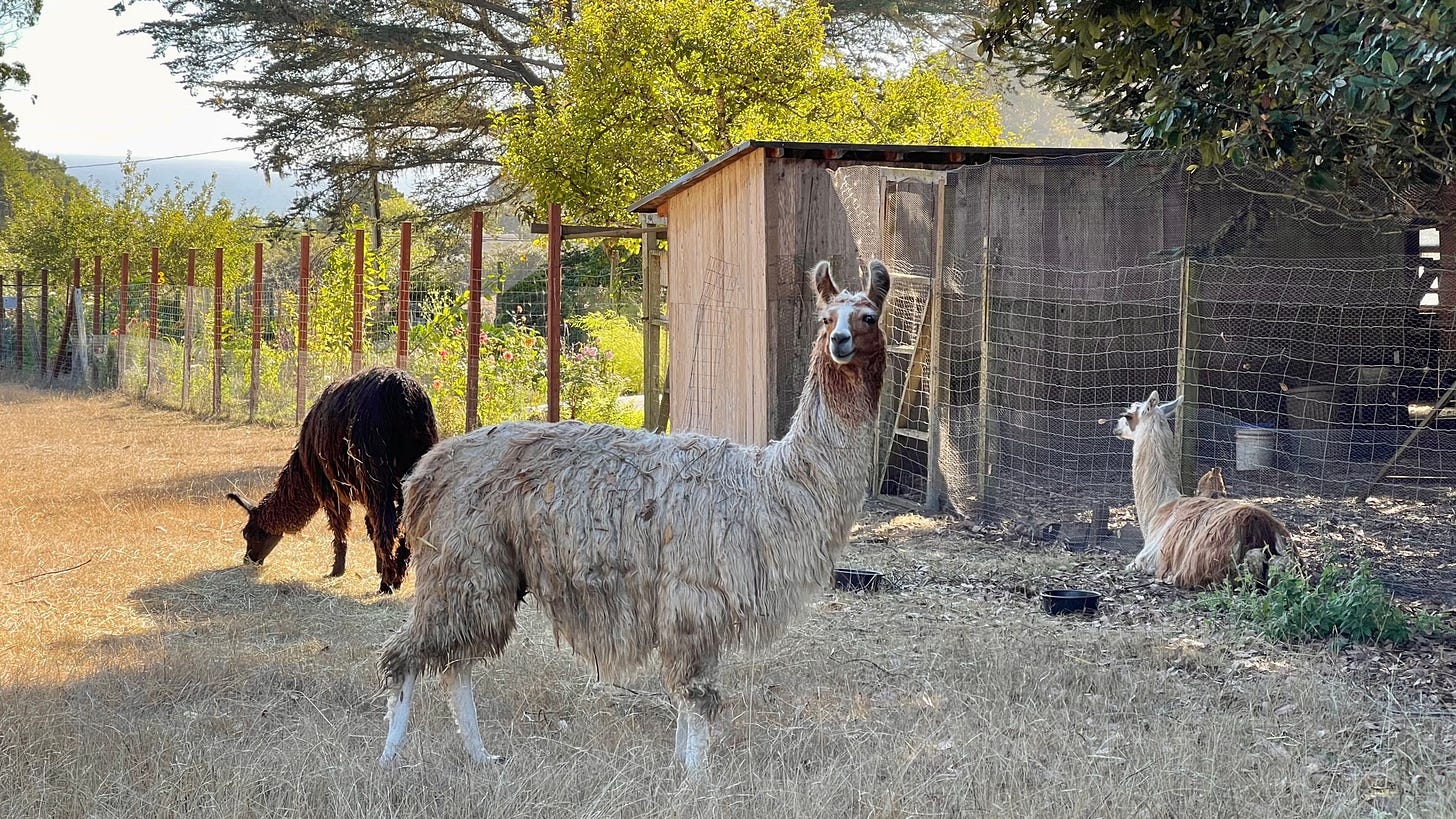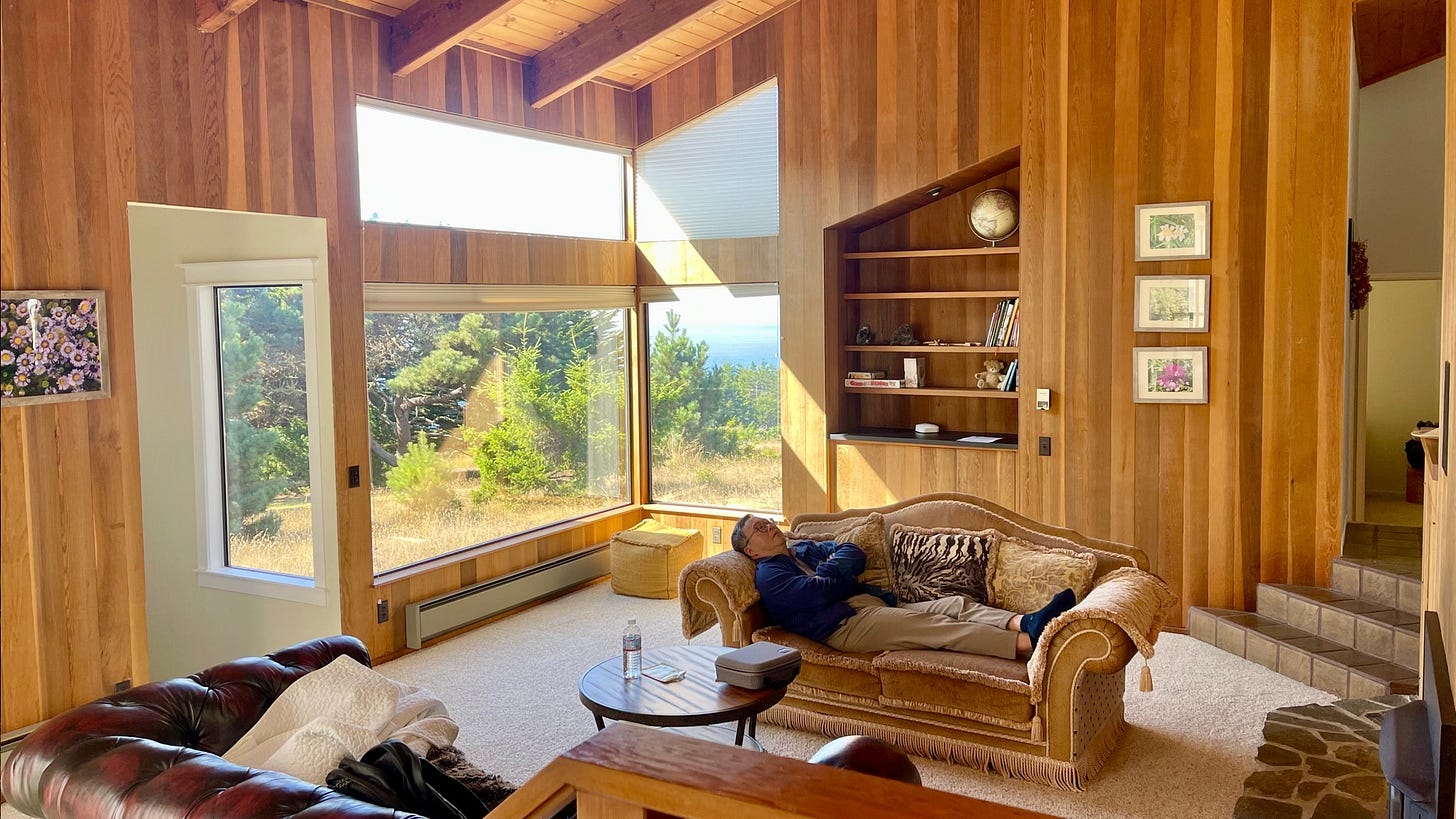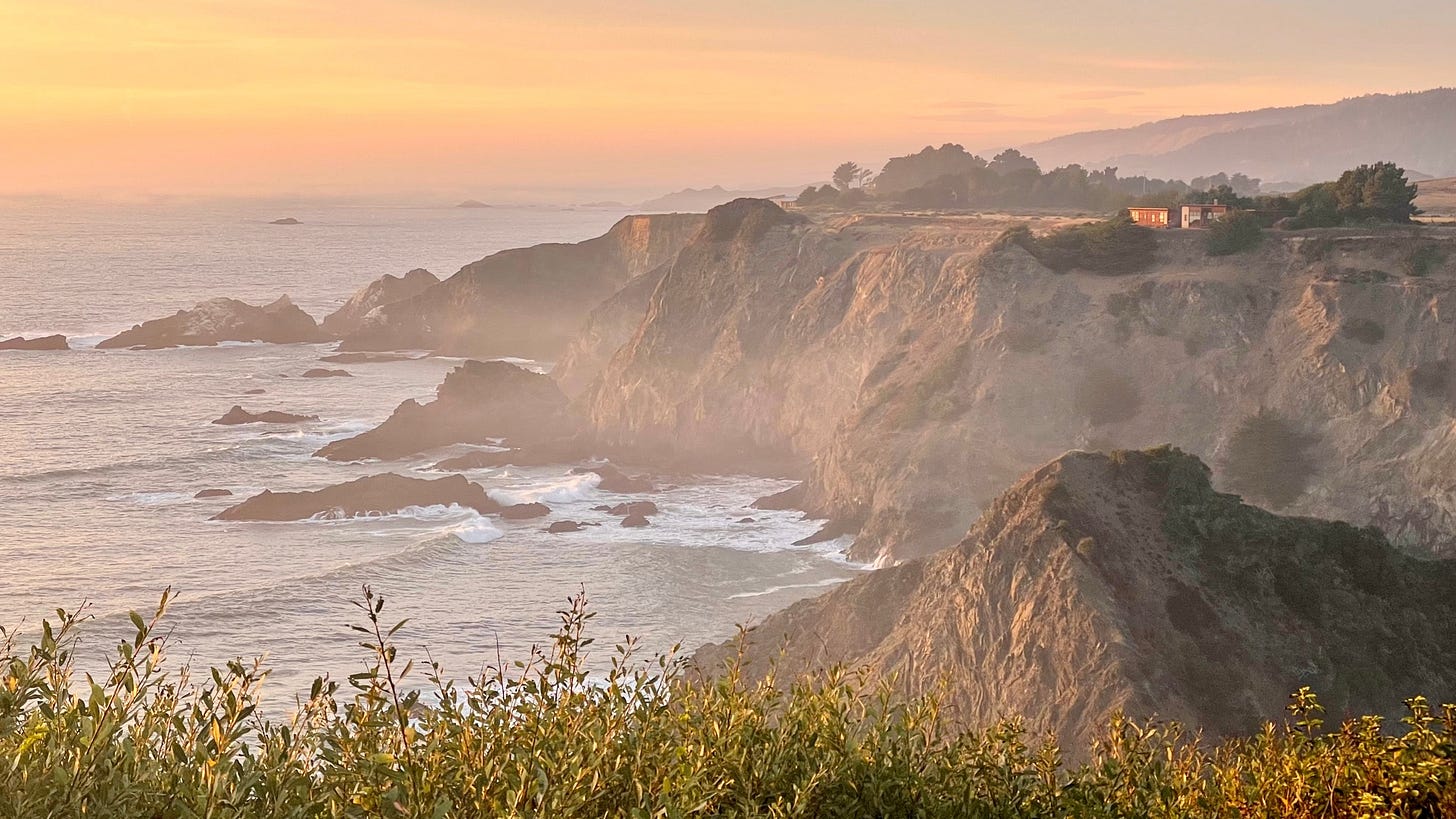Love builds in little ways:
His hands are on her back as he walks her home. There are flowers at her door. She takes in the moment and exhales gratitude. They are content to exist in this space and desire nothing more. For once she knows there will always be reasons to kiss slowly and listen to blue birds sing.It also builds in big ways:
He thinks this is the end but changes his mind. She thinks this is the end but she changes hers. Their hands meet in the middle and reach to try again. And again. They choose the long way home so they can spend more time with each other. They choose each other.Love sneaks up on us.
Like a photo coming into focus, we realize it was staring at us the entire time.
But this type of emotional bliss can only be sustained with conscious choice. It’s a byproduct of having made a commitment to stay mutually curious and offer someone our highest quality of attention—consistently, over a lifetime, without expecting perfection. I love this description from the Gottmans’ newest book, Eight Dates:
A true love story isn’t a fairytale. It takes vulnerability and effort. The reward is that you love your partner more in your fiftieth anniversary than you did in your wedding night. The big secret is simple: make dedicated, non-negotiable time for each other a priority, and never stop being curious about your partner.
How do we choose what (or who) to commit to?
I no longer believe in getting lucky in this realm. A good choice takes hard work, patience, self-awareness, and serious due diligence. There is no “perfect person” who’ll be 100 percent of a match right away. When I find someone whose heart is in the right place and 90 percent of what I’m looking for, I hope to take their hand and search for the missing 10 percent together.
The idea that the person we love, make love with, own property, and share children with are the same is a relatively recent human invention. Like back pain, a 9-to-5, and office commutes, I suspect most of us have unconsciously accepted this extra imposition of modernity. Love and lust in one person is more like a happy coincidence.
I spent much of my teens and twenties trying to be as blank of a slate as possible: closing the least amount of doors, living life in ‘explore’ mode, celebrating our capacity to invite and experience connection, embracing that the journey is where we learn as opposed to set out to prove what we already know. With weak boundaries, it was easy to slide into being overly flexible, pliable, and eager to please. But I realized it would be a complete disservice to my future self and my future partner if I put essential aspects of life on hold until I met the right person.
For example, when I was younger, I wanted to own my home and make it in my own vision, but I worried having a home would make me seem more rigid to others. I worried it would be a metaphorical middle finger to my future spouse (to make big life decisions by myself). I now believe the opposite—that marriage is so sacred that I need to consciously create space (i.e., make decisions that will allow me) to be as patient and gracious as possible about finding this person.
Because indecision might not feel like a choice, but it’s still a choice. My holding back bundled the needs to find a partner and find a home together. I don’t want to be five years from today and desperate to lock down the next guy who walks through the door because I’ve been postponing decisions and waiting for life to begin.
At the core of my indecision was a deep and poignant fear that I could make the wrong decision. But finding a partner wasn’t going to solve this, because I shouldn’t wish to offload life decisions to someone else. Like filling a jar with big rocks, little pebbles, and sand—we have to define our values and where we want to go directionally. Get the big stuff right. We have to articulate the overarching vision for ourselves. We can’t outsource fundamental parts of who we are or what we want to others.
Have you ever met someone for whom you’d forfeit everything?
Everything is a foregone conclusion as soon as I get close enough to learn the scent of their hair. When people return blank looks to this question, what I fear is they are emotionally healthy—and I’m chasing a perfect love, a fairytale, a feeling that doesn’t exist. (I conclude they are innocent of true passion.)1
The best way to keep someone in your life is to consistently give them the best of you.
My friend GB says the best way to keep someone in your life is to consistently give them the best of you: give them a reason to stick around instead of forcing them into commitment with a contract.
It’s hard to argue with this. We don’t sign a contract with our best friends and pledge to be BFFs. We renew that friendship because we enjoy their presence, spending time together is awesome, and we aspire to stay mutually in touch. But it’s not a guarantee. We don’t sign a piece of paper vowing our best friendship.
It’s nice to feel the spirit of Christmas. The easiest way to celebrate Christmas is to get a tree, get some gifts, and call it a day. But the best way to celebrate Christmas is to be generous, be kind, and express our gratitude to those we love and the communities around us.
In the same way, the easiest way to show our commitment to someone else is to sign a piece of paper (the marriage contract). It takes a day, maybe less, and boom—we’re officially committed to one another. But the best way to show our commitment is to continually give someone our full attention, adore them; support and show up for them in the fullest expressions of themselves, their hopes, their dreams; build a meaningful life together, day in, day out, brick by brick, every day.
One of the most alluring illusions in life is that we’re in control of our fates. Day to day, this might feel true: what we eat, where we work, who we love, friends we choose, how we react. But it’s easy to let that slide into this false belief that as long as we do no wrong, nothing bad can happen to us. This is a dangerous narrative because even the best soldier can step on a landmine.
There are no real promises. I can’t promise “I will always be there for you” if I can’t guarantee that I will outlive you, or even be around in a year.
The future is just great intent.
Sometimes I think longingly of my coupled up friends who met in school and have stayed together for the last decade plus. These same coupled-up friends have taken a special interest in my romantic life. At first, I thought it was just nosy, prudent fun. But then it felt starved. While it’s true there’ve been some good stories, good stories seldom come from good experiences.
They might miss the novelty, but absolutely no one misses dating.
I understand it deeply. In both my prior two relationships, I was faced with the troubling dilemma of being in a loving, long-term, stable relationship. As a shared future started to coalescence, I began to wonder, deep in the crevices of my mind, whether I’d become boring—whether this would be the end of my story.
In those moments, I uncovered a shameless secret about myself: I’m just as much a sucker for the daydream of endless possibility as the next schmuck.
In other moments, I fantasize about a life in which the village elder pairs me off, I meet my partner at the altar, and we accept and commit to our fates.
Regret creeps up on everyone differently. When we choose to commit, we must close our eyes and ears to the possibility of other doors. Sometimes it’s better to insulate ourselves from the world of infinite possibility. But if we want a life well-lived, then discomfort is the price of admission. Regret is the price we pay for exercising choice.
Even the best soldier can step on a landmine.
I don’t want dating to be easy. If finding a life partner were easy, we wouldn’t value them. Every partner would be replaceable, just as I’d be replaceable to them. The more time we spend maturing, figuring out how we wish to live, penning our own stories and exercising self-authorship before we find them, the more we’ll cherish the person who ultimately marks its end.








was talking to a friend recently about whether he was gonna DTR with someone and he was like "DTRing doesn't really mean anything bc there's always some next milestone; that even if we're 'boyfriends,' there's still 'oh we're not engaged' 'oh we're not living together' etc"—and even marriage is just a slightly more formal DTR that can (and does) get ruptured formally and informally all the time too!